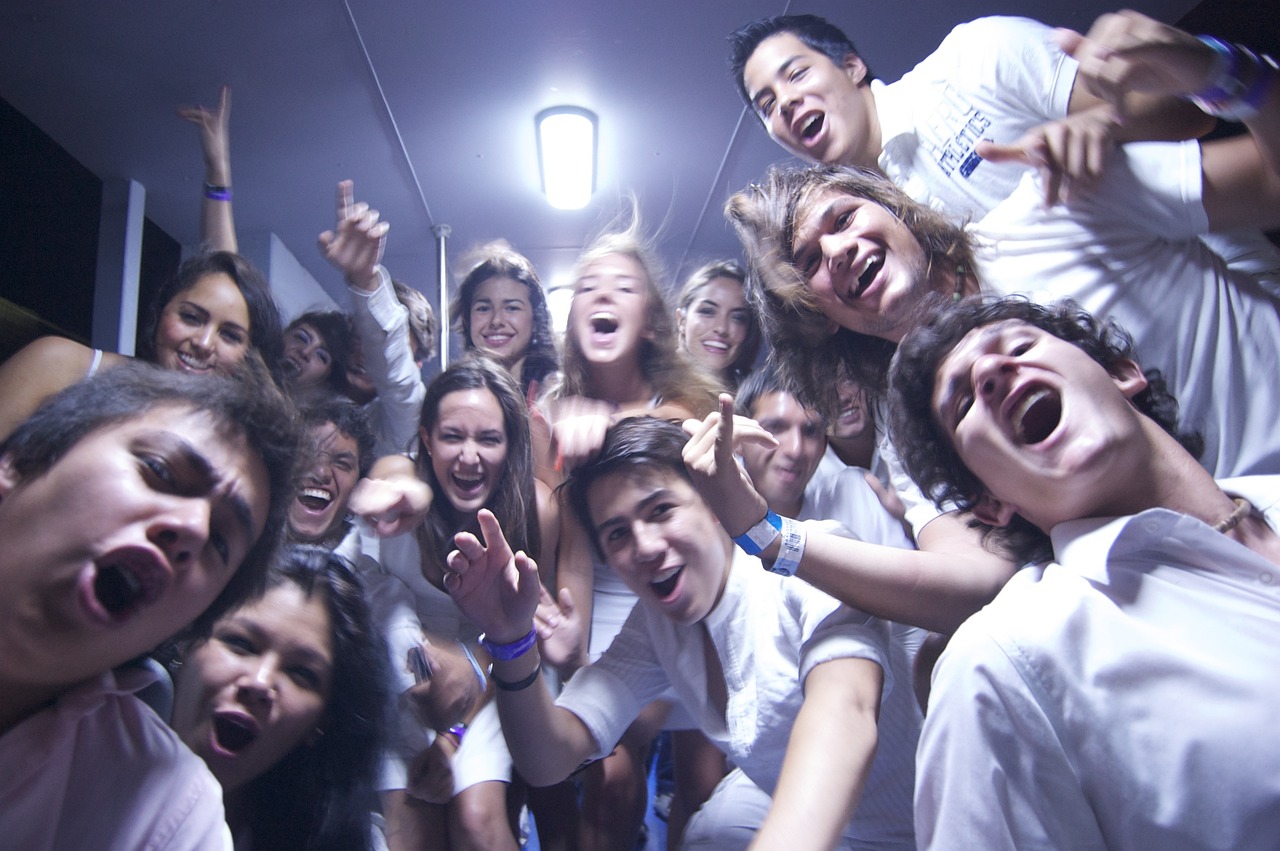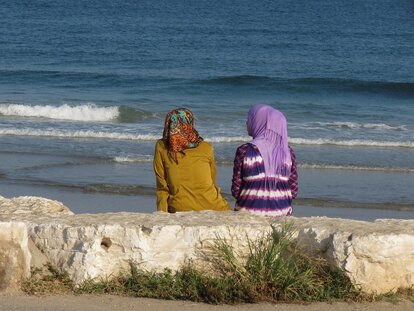Youth
Young people in the Mediterranean and their leisure time

Current globalisation means that a large proportion of young people in post-industrial societies share ways of experiencing leisure: consumption of cultural industries, mainly music and dance, computer gaming, active participation in social networks on the Internet, sporting activities, parties, travel... Young people in the countries that make up the Mediterranean area, unsurprisingly, also structure their leisure time according to the parameters of the globalised world. But beyond the cultural uniformity that our times favour, if there is one thing that we can conceive as characteristic of Mediterranean societies, it is life in the outdoors and the cultivation of sociability. Regardless of age, traditionally and nowadays, a large part of leisure time on both shores of the Mediterranean is channelled through pleasant gatherings in spaces outside the home, whether in parks, on the beach or in the streets and squares of the towns themselves.
In Spain, since the 1980s, “botellón” has been considered one of the most characteristic weekend activities of many young people. Boys and girls meet out in the open at dusk to chat and make new friends, previously stocked up with large bottles of soft drinks and other beverages, including alcohol, hence the name "botellón". In this way, they avoid having to pay the often-high prices for drinks in commercial premises. A "botellón" can take place both in an improvised place with a small circle of friends and in fixed places, which can sometimes host large gatherings. We know that one of the traits of being young is to defy imposed orders and this is also the case with “botellón”, which is generally not well regarded by parents, local authorities, or neighbours, which is why in some municipalities public spaces known as "botellódromos", located on the outskirts of towns, are made available. Recently, a new term has also been coined: "parquineo". These gatherings are held in the open-air car parks of large discotheques.
Although this type of entertainment is typically Spanish, it also occurs in some cities in Portugal and Italy.
Music festivals, mainly during the summer, are also one of the great attractions for young people, as well as popular festivals, in which all citizens participate regardless of age. It is not only the big capitals that offer concerts, but even towns with few inhabitants receive thousands of young people due to the organisation of these events which, again, due to their own social and cultural characteristics, are generally held on the European side: Portugal, Spain, Italy, Greece....

Also in the countries on the southern shores of the Mediterranean, outdoor gatherings of young people are widely practised. The idiosyncrasies of their societies, however, mean that, unlike European populations, it is rare for both sexes to take part in the meetings together. In general, it is the men who make the most of their leisure time by chatting outside in the outdoors, in the street, parks or cafe terraces, always avoiding alcohol consumption. Girls, when they do not meet up at home, wander around parks and avenues that invite you to stroll, as well as in large shopping centres in cities.
This last example makes us think of the three important variables that, in general terms, affect the ways in which young people manage their free time: the specific place of residence, gender and, of course, purchasing power. The leisure possibilities of young people living in rural areas are not the same as those of young people living in cities, which are much better equipped with infrastructures designed for their leisure time, and which also have centres of cultural, social or political associative movements, which also make their own leisure time activities possible. There is also a great imbalance in this respect between the northern and southern shores of the Mediterranean, since in the latter geographical area, young people have fewer leisure possibilities promoted by the state or other public administrations.
Undoubtedly, sporting activities are one of the most widespread ways for young people to channel their leisure time. From Turkey to the Iberian Peninsula, via the entire Mediterranean basin, Morocco, Tunisia, Egypt, etc., football is the most popular sport. It is not necessary to have a well laid out pitch with grass, goals, and a regulation ball. A pitch can be improvised in any public space where a group of young people can kick a ball or anything that can move along the ground. While in Western countries there is an increasing participation of girls in leisure activities traditionally considered masculine, such as football, in Muslim countries the participation of girls in sporting activities is still very low.
The high rates of youth unemployment that characterise the countries on both sides of the Mediterranean mean that young people have more leisure time available to them. This increased potential for leisure time does not, however, mean that it is really "leisure time", since frustration at the lack of employment opportunities has a negative effect on this free availability of time. "Being idle" is not quite the same as "living leisure", which is, by the way, becoming more and more important. Leisure has even been declared a right under Article 24 of the Universal Declaration of Human Rights. Indeed, leisure should be the most natural state of the human being, as Aristotle, one of the most Mediterranean philosophers, already understood it in his treatise Nicomachean Ethics (Book X, 1177b). However, the ethos of the Western worldview, which globalisation has spread urbi et orbi, means that the glorification of work, productivity and consumerism makes us understand leisure as something residual that must be literally torn away from the hours devoted to work, rest and social obligations, a reality that hinders the creative and autonomous management of leisure. In any case, when young people in the Mediterranean spend their leisure hours chatting with each other in the open air or indulge in an impromptu game of football by kicking an empty can, it becomes clear that, despite social structures, it is still possible to manage leisure with a certain creativity and autonomy.
